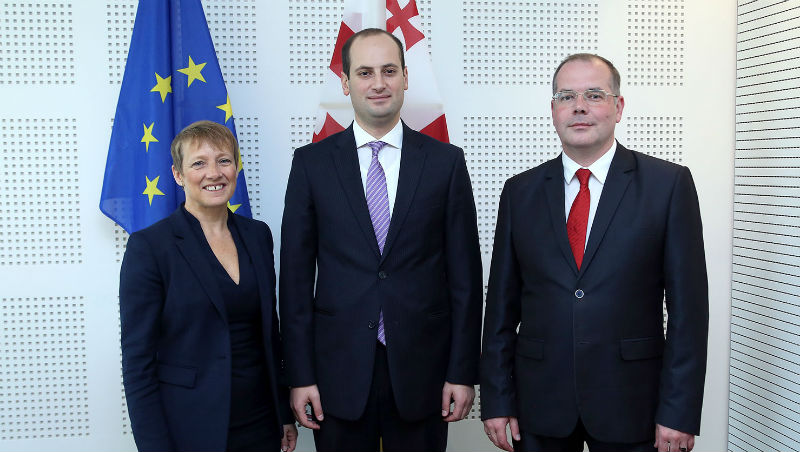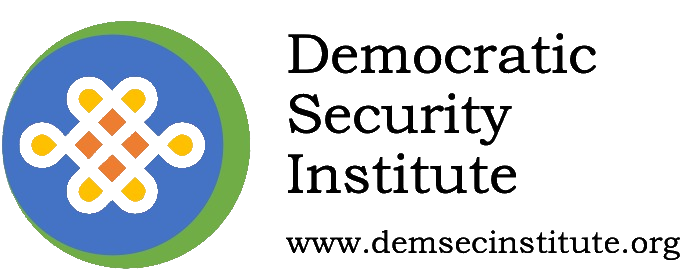The Eastern Partnership (EaP) summit on 24 November in Brussels, represents another important milestone in Georgia’s path of European integration. After having signed an Association Agreement with the European Union that entered into force in July 2016, and having been granted visa free status, Georgia is now looking forward to seeing its position as a frontrunner in the EaP community confirmed by the EU leadership. The current challenge for the EU is to find ways to maintain Georgia committed to the agreed reforms in the absence of significant new political incentives.
As a recent European Parliament resolution recommends, the EU institutions should find ways “to ensure that the November 2017 Summit will be forward looking, injecting new dynamism and setting a clear political vision for the future of the Eastern Partnership as a long-term policy”. If further calls for the creation “within the EaP policy, [of] an attractive longer-term ‘EaP+’ model for associated countries that have made substantial progress in implementing AA/DCFTA-related reforms.”
Paradoxically, the dilemma of designing an Advanced Association Agenda for Georgia is made more acute by the willingness of the Georgian authorities in implementing most EU reforms and in some cases even going beyond what the EU is proposing. Illustrating this, the Deep and Comprehensive Free Trade Agreement (DCFTA) signed with Georgia is the most ambitious ever signed by the EU, establishing full liberalization. This is not to say there isn’t significant work ahead for Georgia’s political association and economic integration to be consolidated, nor that there aren’t risks involved in this process. What is becoming clear during this process is that successful reforms create added pressure on the EU to design new possibilities for political relations, to which the Union remains incapable of committing.

At the level of democratic reforms, Georgia has made significant progress, namely through constitutional reforms aimed at establishing a parliamentary system and having had peaceful power transition between government and opposition parties. These are signs of maturity, which need to be supported and accompanied and which the newly agreed Agenda for Democratic Reforms should reinforce. Continued work on transparency and e-governance, fight against corruption and improvement of Human Rights situation, including media freedom, should be fostered as structural elements of this agenda, and are expected to be a central part of the EU’s dialogue with the Georgian government and society in the years to come.
Significant work is still ahead also in economic terms, namely developing the infrastructure for integrating Georgia and other EaP countries into the EU’s internal market. Taking full advantage of EU progams and of sectoral cooperation would certainly push Georgia’s European integration forward and bring concrete benefits to the Georgian society. This is of course an important element in keeping popular and elite support for European integration.
“Paradoxically, the dilemma of designing an Advanced Association Agenda for Georgia is made more acute by the willingness of the Georgian authorities in implementing most EU reforms and in some cases even going beyond what the EU is proposing.”
Other important area where more could be done is Georgia’s participation in CFSP and in European security more generally. EU standing on major international issues would be reinforced if more partner countries would align their position behind the EU’s, whereas issues dealing with organized crime, money laundering and terrorism would clearly benefit from close cooperation, given their transnational nature. Closer cooperation on CFSP issues would certainly also make the EU more invested in conflict resolution processes. Although the EU has become a central actor in peace negotiations over the Abkhazian and South Ossetian conflicts following the 2008 war in Georgia, the lack of tangible progress over the last decade raises the issue of the effectiveness of these formats and demands innovative ways of moving the peace processes forward.
Georgia-EU relations have acquired the status of a deep and structured partnership and the Georgian government and its society have consistently been committed to pursuing European integration, especially considering NATO member states’ hesitations on future membership to Georgia and Ukraine into the alliance. Making the best use of this mutual interest in pursuing reforms, both the EU and Georgia need to remain vigilant and engaged, considering the potential for spoilers to affect the process. Spoilers can of course come from Russia itself, as has been done in the past, but can also come from the EU and from Georgia.
At the EU level, losing sight of the potential negative effects of economic integration into the EU and of the need to make the benefits of European integration available to all strata of the society and all regions can easily develop, considering the often self-serving nature of its policies. Having interests is a natural element of foreign policy, but these need to be made compatible with the interests of your partners.
For Georgian’s elites, spoilers can emerge in the form of non-democratic elites, with vested interests in maintaining the old system in place. In this scenario, the steps taken towards the EaP summit 24 November in Brussels should be seen as another milestone consolidating this partnership, but one where a great deal of work should continue to be done by both sides.
Licinia Simão is an Assistant Professor at the University of Coimbra in Portugal and an EDSN Fellow. Her new book, The EU’s Neighbourhood Policy towards the South Caucasus, was recently published by Palgrave Macmillan.
